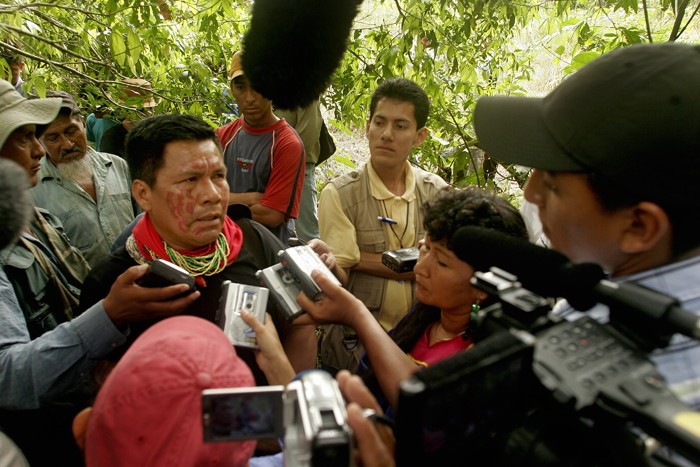Justice is a dirty process
David and Goliath battle between Big Oil and poisoned Ecuadorian Amazons takes centre stage in Crude
When 10 million gallons of oil spilled in Alaska in the much-publicized Exxon-Valdez disaster in 1989, harrowing images of small petrol-covered animals struggling to stay alive blasted from every news media outlet. At that very same time, Ecuadorian Amazons came forward with reports of cancer, displacement and death caused by spills 30 times greater than the Valdez case, to a deaf audience.
With Crude, director Joe Berlinger (Brother’s Keeper, Metallica: Some Kind of Monster) uses his camera to portray the tireless efforts of a small group of people fighting for retribution from the jungle in an effort to take down Big Oil. It follows the lives of Pablo Fajardo, an Ecuadorian native who was raised in extreme poverty, and his American counterpart.
Fajardo put himself through law school and became the lead lawyer against Chevron Corporation three years later. His outspoken American counterpart is Stephen Donziger, the case’s consulting attorney.
The beauty of the film lies in its contrasts. Berlinger stylistically draws upon the colourful rainforest environment pitched against a grey, corporate-looking defence to clearly emphasize who the good and the bad guys are.
The camera follows Fajardo in his fish-out-of-water visits to the United States and can’t help but emphasize the enormous duty he carries. He is a representative for thousands of disenfranchised people through a maze of bureaucracy and almost endless legal and financial corporate resources.
The small successes are what drive Fajardo and Donziger forward. An editorial in Vanity Fair and celebrity endorsement by Sting at the Live Earth concert are juxtaposed with mountains of legal paperwork, images of children with strange birth defects and accounts of family members lost to contaminated water.
It’s almost fatiguing to watch the 14-year, multibillion-dollar effort condensed into a two-hour period for the sheer grandeur that the case represents.
Berlinger presents a very clear favour to David over Goliath, but does so in a subtle way. After a crushing near-victory in a $27 billion settlement for Donziger, he considers the fact that they took this company to court in the first place to be a huge leap for human rights.
This documentary is not only an informative firsthand account into the exploitation of Ecuadorians, but is also a stunning commentary on human rights and corporate accountability.
Fajardo’s legal battle is estimated to continue for another 10 years, but perhaps with the help of Berlinger’s documentary, it won’t have to.
Published in Volume 64, Number 19 of The Uniter (February 11, 2010)







